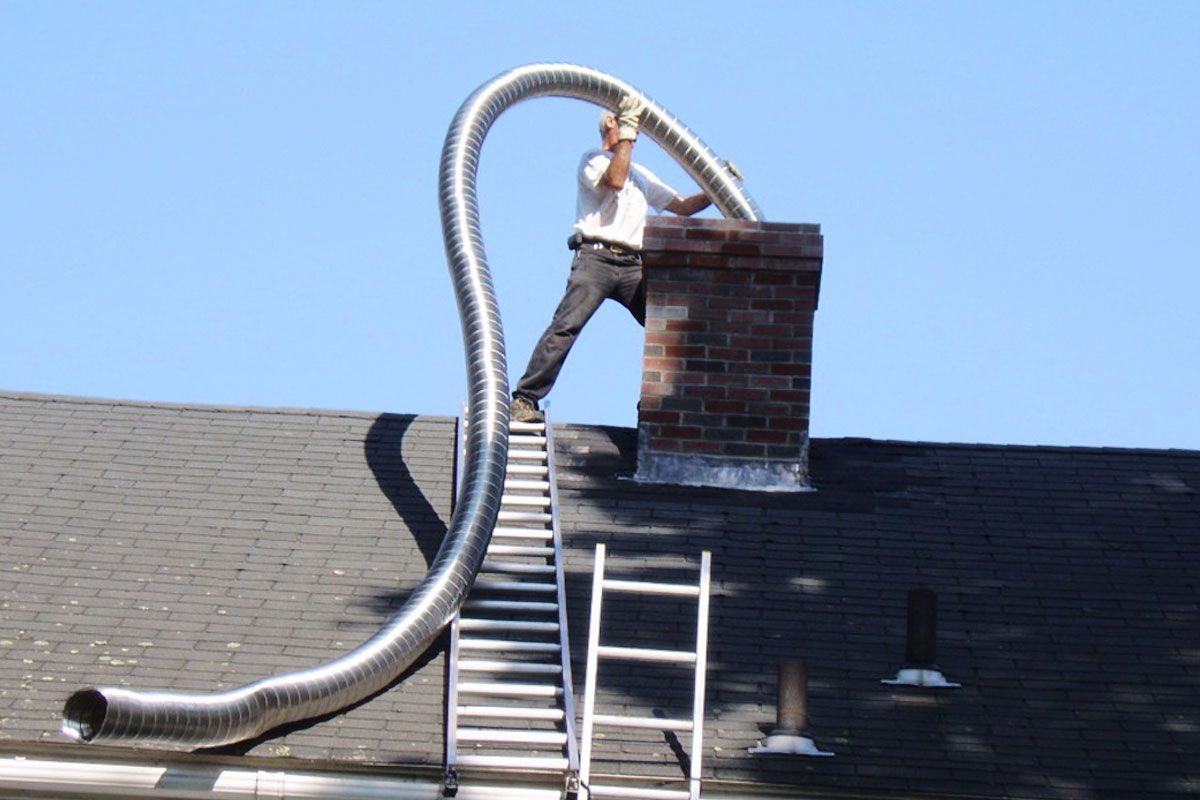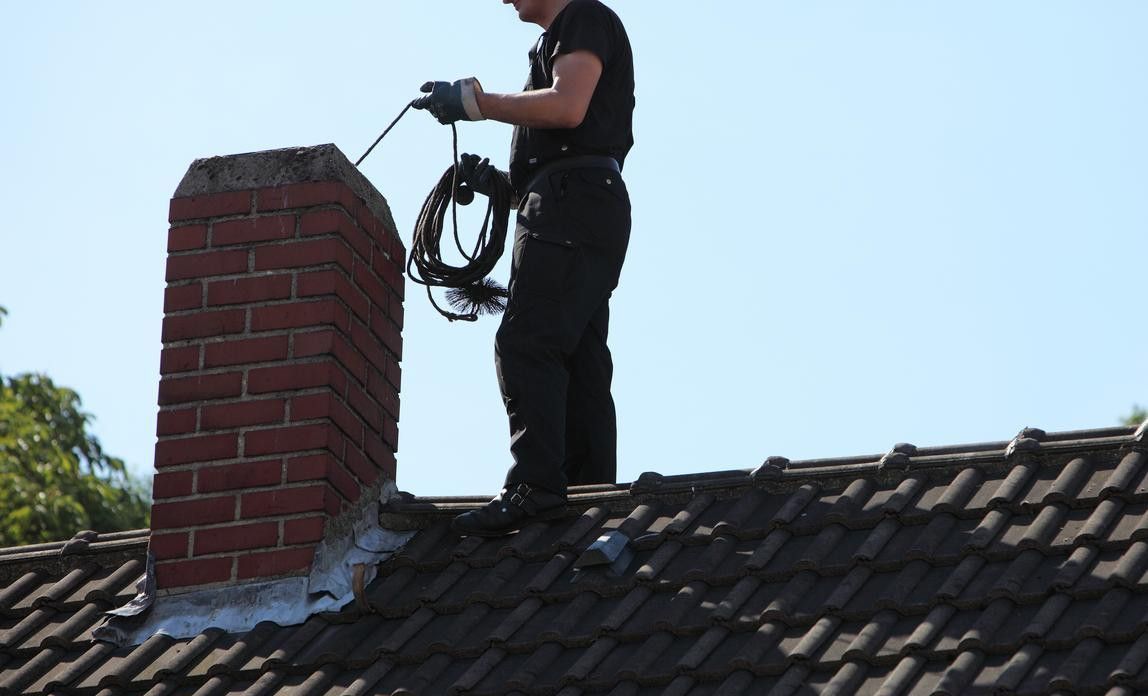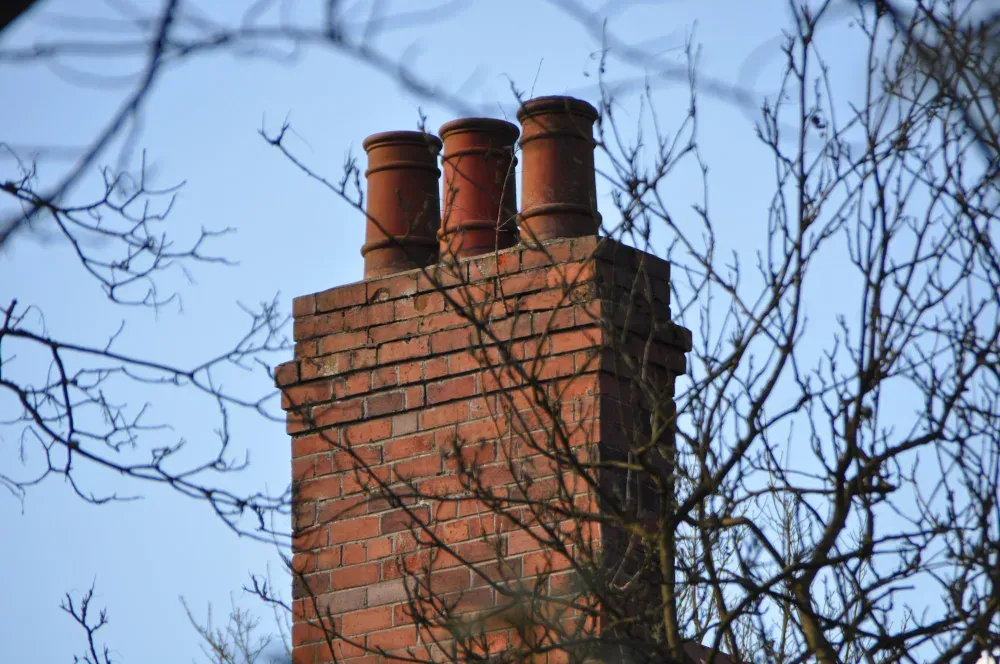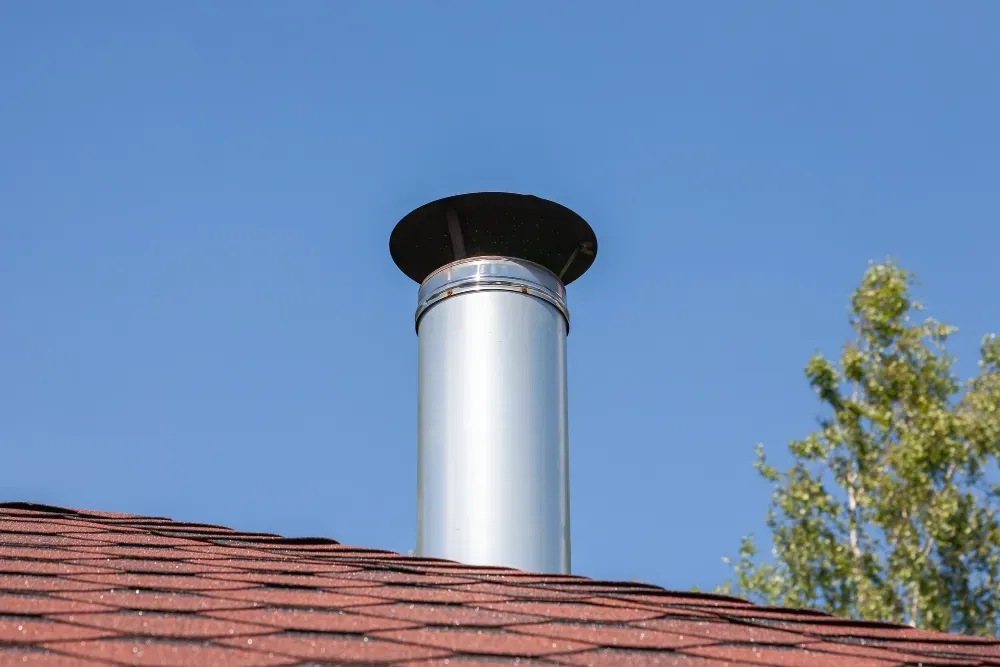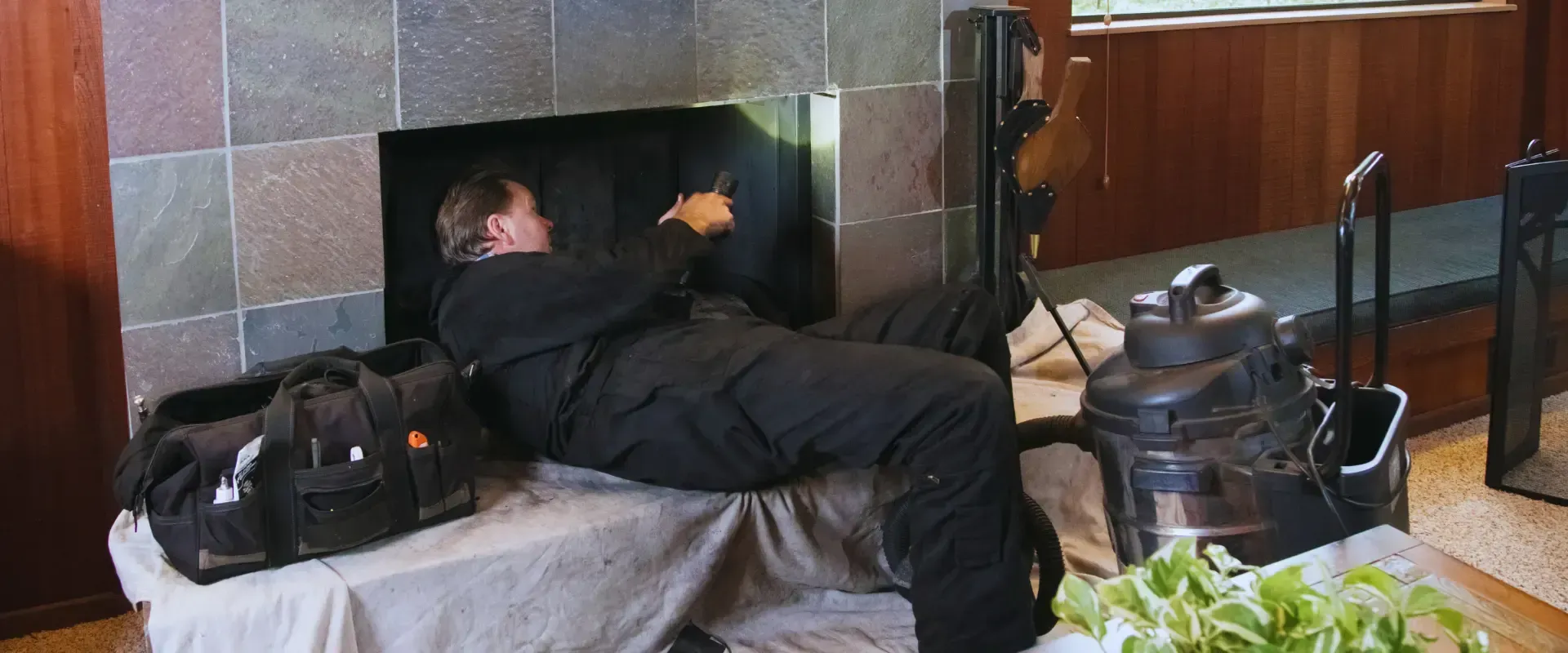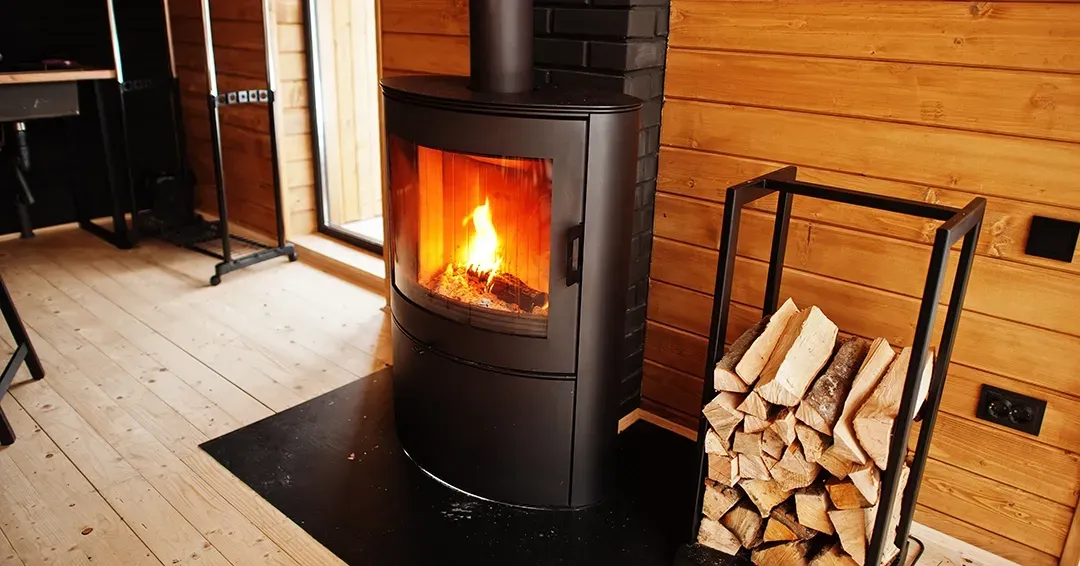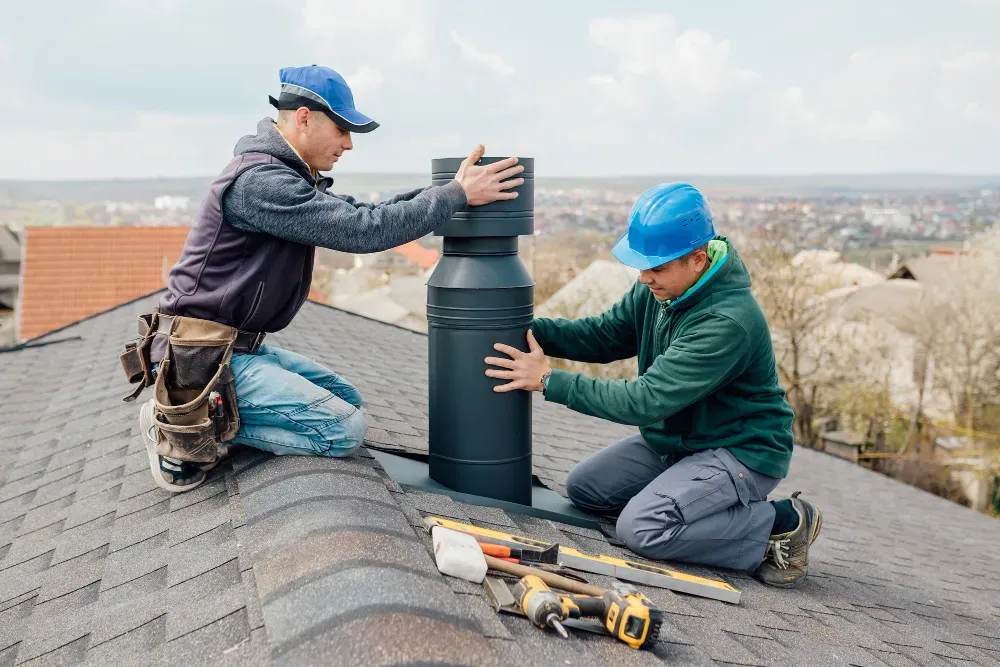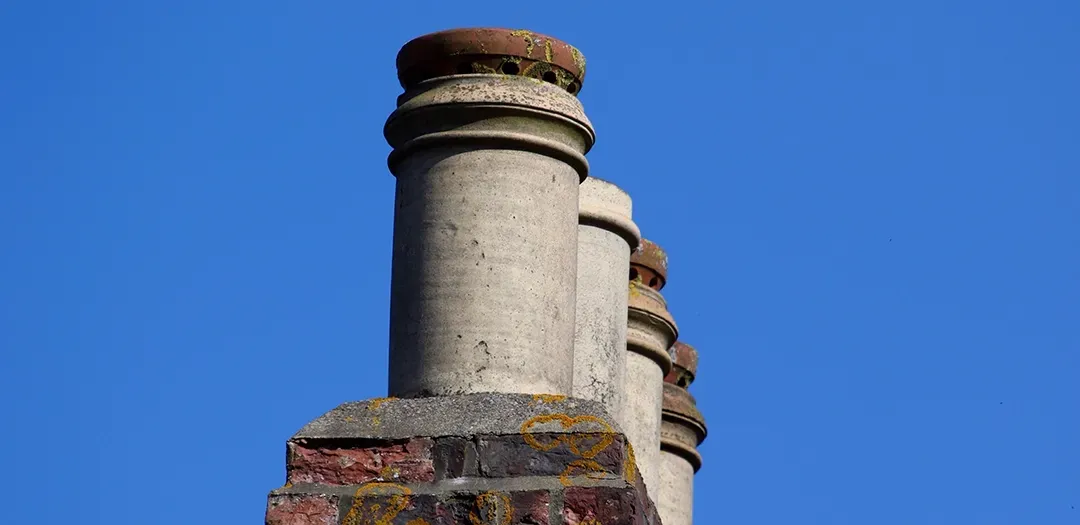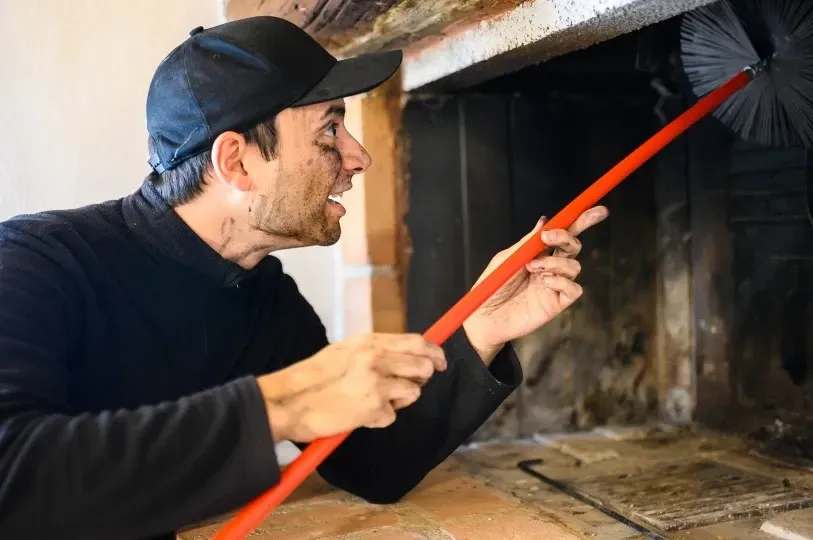Top 5 Signs You Need Chimney Services in Your Maine Home
Last winter, I woke up to a strange smell in my living room. It wasn't quite smoke, but something was definitely off. After a quick inspection of my fireplace, I noticed water stains on the surrounding wall and some crumbling bits of mortar on my hearth. What I initially dismissed as "just an old chimney" turned out to be several issues that needed immediate attention. This experience taught me firsthand the importance of recognizing when your chimney is crying out for help.
Living in Maine means our chimneys work overtime during our long, harsh winters. They're not just architectural features; they're essential home systems that keep us warm and safe. But how do you know when your chimney needs professional attention? In this guide, I'll share the top five warning signs that indicate it's time to call in the experts, based on my experience and conversations with local
chimney professionals.
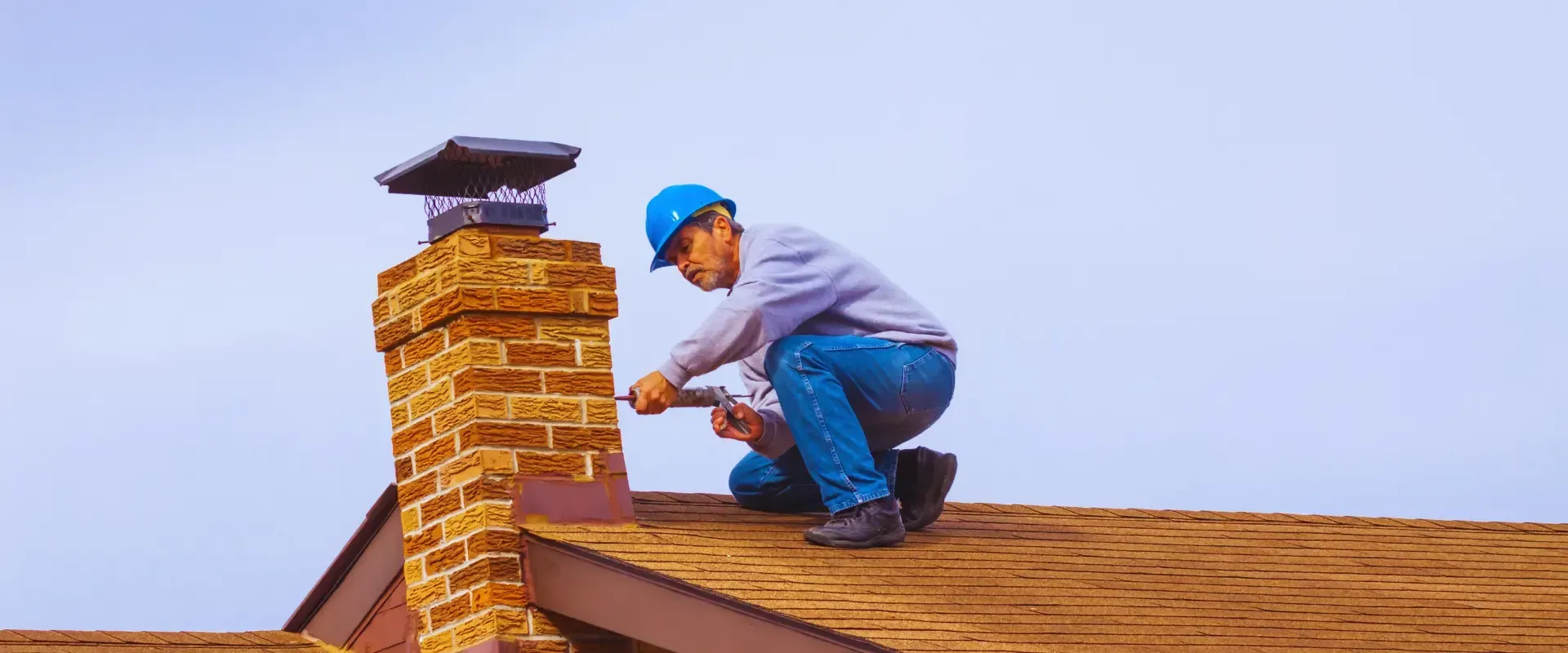
Understanding Your Chimney's Role in Home Safety
Before diving into the warning signs, it's helpful to understand what your chimney actually does. This knowledge makes it easier to recognize when something isn't right.
How Chimneys Function in Maine's Harsh Climate
Your chimney does much more than just let smoke escape. It creates the draft that pulls combustion gases out of your home while supplying fresh oxygen to your fire. In Maine's climate, where we experience everything from humid summers to freezing winters, chimneys face unique challenges.
During winter, the extreme temperature difference between your warm home and the freezing outdoors creates strong updrafts. This is generally good for fire performance but puts stress on chimney materials. Then, during spring thaws, the freeze-thaw cycle can cause water to seep into small cracks, expand when frozen, and gradually break apart mortar and brickwork.
The Relationship Between Chimney Maintenance and Home Safety
I can't stress enough how chimney condition directly affects your family's safety. A well-maintained chimney:
- Prevents toxic gases like carbon monoxide from entering your home
- Reduces fire risks by properly containing and directing heat
- Maintains structural integrity of your home's exterior
- Improves heating efficiency, potentially saving on energy costs
Now that we understand why chimney care matters, let's look at the warning signs that indicate it's time for professional service.
Sign #1: Visible Damage to Your Chimney Structure
The most obvious sign that you need chimney services is visible physical damage. Since your chimney is constantly exposed to the elements, it's often the first part of your home to show wear and tear.
Crumbling Mortar and Brickwork
One morning, while enjoying my coffee on the deck, I noticed small piles of grit collecting at the base of my chimney. This was my first clue that something wasn't right. Deteriorating mortar joints (the material between bricks) is one of the most common chimney problems in Maine homes.
Look for:
- Loose bricks or stones
- White staining (efflorescence) on brickwork
- Mortar that's receding between bricks
- Small piles of debris around the chimney base
When Tuckpointing Becomes Necessary
Tuckpointing is a specialized repair process that replaces damaged mortar between bricks. It's not just cosmetic—it's structural. Without proper mortar joints, your chimney becomes unstable and vulnerable to moisture penetration.
I learned that waiting too long for tuckpointing can turn a simple repair into a complete chimney rebuild. The professionals at Select Chimney Services explained that tuckpointing is ideally done when mortar is deteriorated but before bricks become loose or damaged.
Leaning or Tilting Chimney Structures
A chimney that's starting to lean is a serious red flag. This usually indicates foundation issues or significant structural damage that needs immediate attention. Even a slight tilt can compromise your chimney's integrity and potentially lead to collapse.
When my neighbor noticed her chimney was slightly off-center, she initially thought it was just settling. But after a professional inspection, it turned out that water damage had compromised the chimney's foundation. Catching this early saved her from a much more extensive (and expensive) chimney demolition and rebuild.
Sign #2: Water Damage and Leaks
Water is your chimney's worst enemy, especially in Maine where precipitation is abundant year-round.
The Importance of Waterproofing for Maine Homes
My own experience with water stains around my fireplace taught me how vulnerable chimneys are to moisture problems. Many homeowners don't realize that brick and mortar are actually porous materials that absorb water unless properly protected.
Proper waterproofing involves applying specialized breathable sealants that allow the chimney to release trapped water vapor while preventing liquid water from entering. This is particularly important in Maine, where snow can sit against chimney structures for months at a time.
"Most chimney damage I see could have been prevented with proper waterproofing and regular maintenance. It's much more cost-effective to protect your chimney than to repair water damage." - Maine Chimney Specialist
Detecting Early Signs of Water Infiltration
Look for these warning signs that water is becoming a problem:
- Water stains on ceilings or walls near the chimney
- Damp patches in the fireplace when it rains
- Rusted damper or firebox components
- Deteriorating chimney crown or cap
- Efflorescence (white staining) on exterior brickwork
Seasonal Inspection Guidelines
I've made it a habit to check my chimney after major weather events:
- Spring: Look for winter freeze-thaw damage
- Summer: Perfect time for repairs and waterproofing
- Fall: Ensure everything is in good working order before heating season
- Winter: Monitor for ice dams and excessive snow buildup
Sign #3: Poor Draft or Smoke Problems
If you've ever lit a fire only to have smoke pour back into your living room, you know how frustrating draft problems can be.
Understanding Draft Issues and Their Causes
A properly functioning chimney creates an updraft that pulls smoke and gases up and out of your home. When this doesn't happen, it's usually due to one of several issues:
- Blockages from debris or animal nests
- Creosote buildup narrowing the flue
- Improper chimney height
- Damaged or deteriorated chimney liner
- Closed or damaged damper
The first time I experienced a smoky backflow, I was tempted to just stop using my fireplace. Instead, I contacted chimney experts who identified a partial blockage and a damaged liner as the culprits.
The Role of Stainless Steel Liners in Improving Function
Many older homes in Maine have clay tile liners or even no liners at all, which can lead to draft problems and safety hazards.
Stainless steel liners offer several advantages:
- Improved draft efficiency
- Better heat containment
- Resistance to acidic creosote damage
- Longer lifespan in our harsh Maine climate
- Protection of your home's structure from heat and fire
When to Consider Liner Replacement
You might need a new stainless steel liner if:
- Your chimney has no liner (common in pre-1940s homes)
- Your existing clay tiles are cracked or damaged
- You've changed heating appliances (like adding a wood stove)
- You're experiencing persistent draft problems
- A chimney inspection reveals deterioration
Sign #4: Creosote Buildup and Fire Hazards
The first time I saw professional chimney sweeps remove creosote from my chimney, I was shocked by the amount of this tarry, flammable substance that had accumulated in just one heating season.
The Dangers of Excessive Creosote
Creosote is a natural byproduct of burning wood, but it's also highly flammable and the leading cause of chimney fires. This black or brown substance can be:
- Flaky and easy to brush away (early stage)
- Sticky and tar-like (second stage)
- Glazed and hardened like candy (third stage)
The third stage is particularly dangerous and difficult to remove, requiring specialized techniques and tools.
Creosote Stage Appearance Removal Difficulty Fire Risk Stage 1Flaky, soot-like Easy Moderate Stage 2Sticky, tar-like Moderate High Stage 3 Glazed, hardened Difficult Extreme
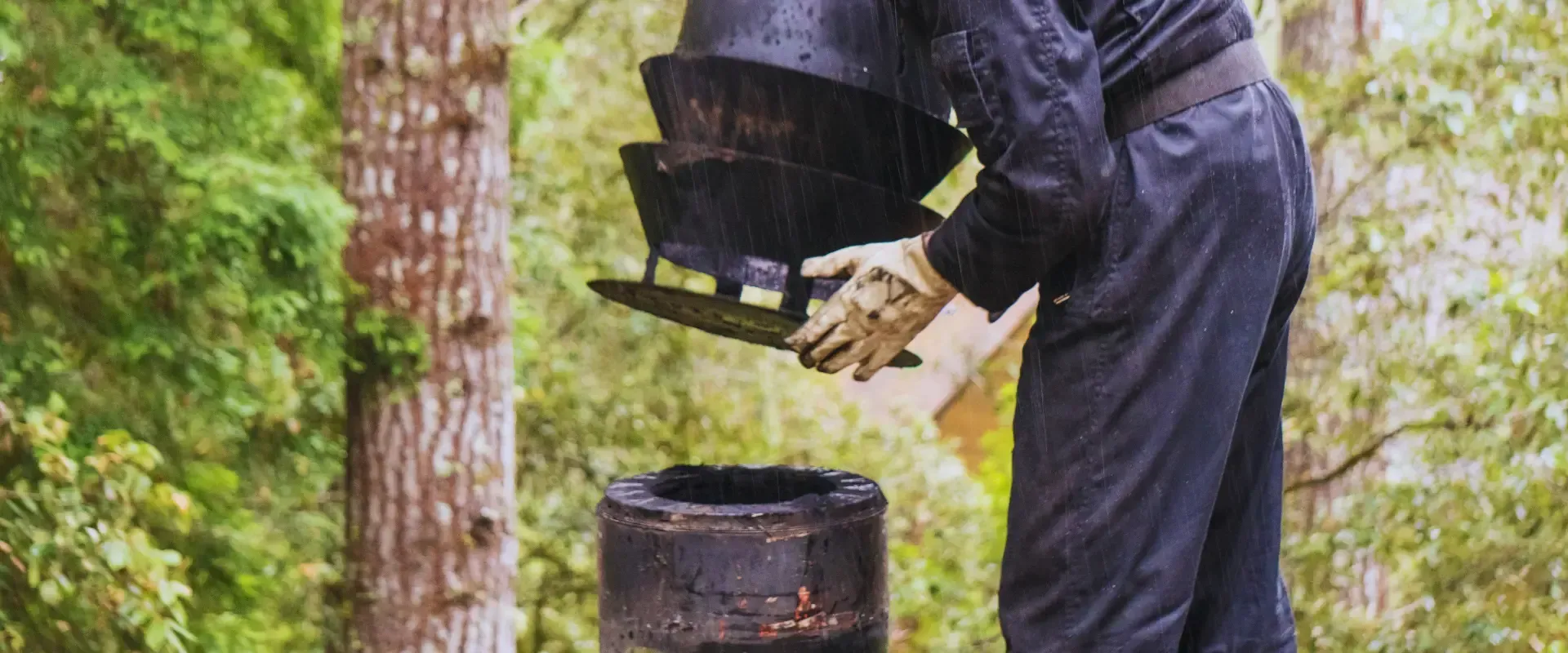
Professional Cleaning vs. DIY Approaches
While I'm usually a DIY enthusiast, chimney cleaning is one area where I always call the professionals. Here's why:
- They have specialized tools to reach the entire chimney system
- They can identify damage and other issues during cleaning
- They properly dispose of creosote (which can be hazardous)
- They have the training to work safely at heights
- They provide documentation for insurance purposes
If you use your fireplace or wood stove regularly, annual professional cleaning is recommended. For occasional users, an inspection can determine if cleaning is needed.
Sign #5: Aging Chimney Components
Like any part of your home, chimneys have components that wear out over time. Recognizing when these need replacement can prevent larger problems.
When Chimney Demolition May Be Required
Sometimes a chimney reaches a point where repairs are more costly than rebuilding. This was the case with my sister's 120-year-old farmhouse in rural Maine. The chimney had deteriorated to the point where demolition and rebuilding was the safest option.
Signs that might indicate the need for demolition include:
- Significant leaning or structural movement
- Large cracks running through multiple bricks
- Failed previous repairs
- Widespread spalling (flaking of brick faces)
- Deterioration affecting more than 25% of the structure
Modern Replacements and Upgrades for Older Systems
If you're facing major chimney work, it's a good time to consider upgrades:
- Top-sealing dampers that provide better energy efficiency
- Extended chimney caps that prevent animal entry
- Chase covers for prefabricated chimneys
- Chimney fans to improve draft in problematic situations
- Rain-resistant caps with spark arrestors
When I had my liner replaced, I opted for an upgraded cap system with better rain protection, which has significantly reduced moisture issues.
Finding the Right Chimney Service in Maine
Not all chimney services are created equal, and finding the right professional makes all the difference.
Questions to Ask Before Hiring a Chimney Professional
When I was searching for a chimney service, I created this checklist of questions:
- Are they CSIA (Chimney Safety Institute of America) certified?
- How long have they been working in Maine specifically?
- Do they carry liability insurance and workers' compensation?
- Will they provide a written evaluation and estimate?
- Can they show examples of similar work?
- Do they offer emergency services if needed?
I found Select Chimney Services through a neighbor's recommendation, and their thorough inspection and clear explanation of my chimney issues gave me confidence in their expertise.
Seasonal Timing for Chimney Services
I've learned that timing matters when scheduling chimney work:
- Spring and summer are ideal for major repairs and waterproofing
- Late summer/early fall is perfect for cleaning before heating season
- Emergency services may be harder to schedule during peak winter months
- Some repairs can't be properly completed in freezing conditions
Planning ahead and scheduling annual maintenance in the off-season typically means better availability and sometimes better rates.
Prevention Tips for Maintaining Your Chimney
As a homeowner, I've found that regular maintenance prevents most major chimney problems.
Year-Round Chimney Care for Maine Homeowners
My maintenance schedule looks like this:
- Monthly (during use): Visual check of firebox and damper
- Seasonally: Exterior visual inspection for obvious damage
- Annually: Professional inspection and cleaning if needed
- After storms: Check for damage, especially after high winds or heavy snow
Simple preventative measures I take include:
- Burning only seasoned hardwood
- Never using accelerants to start fires
- Installing a chimney cap to keep out animals and precipitation
- Addressing minor repairs promptly before they become major issues
- Keeping trees trimmed away from the chimney
Conclusion: Protecting Your Home Through Proper Chimney Care
My journey with chimney maintenance has taught me that being proactive saves money, prevents stress, and most importantly, keeps my family safe. The five warning signs we've covered—structural damage, water issues, draft problems, creosote buildup, and aging components—provide a framework for monitoring your chimney's health.
Living in Maine presents unique challenges for homeowners, with our extreme seasonal changes and harsh winters. Our chimneys work harder than in many other regions, making regular professional care even more important.
I encourage you to schedule an inspection with trusted professionals if you've noticed any of these warning signs or if it's been more than a year since your last chimney check. The peace of mind that comes from knowing your chimney is in good working order is well worth the investment.
Key Takeaways:
- Watch for crumbling mortar, which may require tuckpointing
- Address water damage immediately and consider waterproofing
- Poor drafts often indicate the need for stainless steel liners
- Schedule annual inspections and cleanings to prevent creosote buildup
- Know when repairs make sense versus when demolition and rebuilding is necessary
- Choose certified professionals with Maine-specific experience
Frequently Asked Questions About Chimney Services
How often should I have my chimney inspected in Maine?
I recommend an annual inspection, ideally before heating season begins in the fall. Homes with heavy fireplace or wood stove use might benefit from more frequent checks.
What's the average cost of chimney waterproofing?
In my experience, waterproofing typically ranges from $500-$1000 for an average-sized chimney in Maine. While this might seem expensive, it's far less costly than repairing water damage later.
Can I use my fireplace with a damaged chimney liner?
Absolutely not. A damaged liner can allow heat and sparks to reach combustible parts of your home's structure, creating a serious fire hazard. It can also let carbon monoxide seep into your living space.
How long do stainless steel chimney liners typically last?
Quality stainless steel liners generally last 15-25 years in Maine's climate, depending on use and maintenance. This is significantly longer than clay tile liners, which often develop cracks from freeze-thaw cycles.
Is chimney tuckpointing something I can do myself?
While minor mortar repairs might be within a skilled DIYer's abilities, proper tuckpointing requires specialized tools and knowledge of historic masonry techniques. The mortar mix must match the original in composition and strength, which is difficult for non-professionals to achieve.
What should I do if I suspect a chimney fire has occurred?
Stop using your fireplace or wood stove immediately and call for a professional inspection. Even small chimney fires can cause damage that isn't visible from the ground but could compromise safety for future use.
How can I tell if animals have nested in my chimney?
Listen for scratching sounds, look for nesting materials falling into your fireplace, and watch for unusual draft problems or blockages. If you suspect animals, call a professional who can safely remove them without harming the wildlife or your chimney.
Remember, your chimney is a crucial system in your home, especially here in Maine where we rely on heating systems heavily. When in doubt, contact Select Chimney Services for professional guidance tailored to your specific situation.
